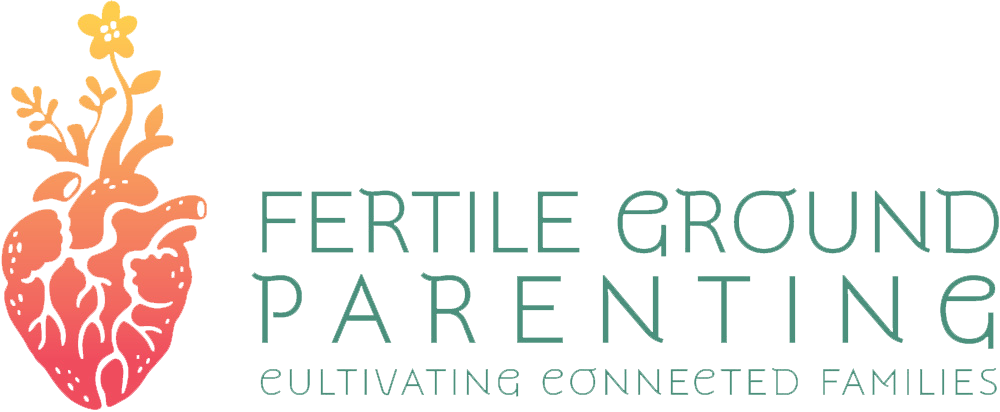“There is a crack, a crack in everything
That’s how the light gets in.”
I taught a class—online, of course—on Sunday and as soon as I saw the lovely faces popping up on my screen, I was hit by a wave of longing for the beforetimes when I got to see and talk to and work with parents in person.
That’s the funny thing about this extended time, isn’t it? How it keeps unfolding and showing us where we have sore spots, even after almost a year at it.
Have you noticed that parenting is like that too? Just when we think we’re getting the hang of what it feels and looks like to raise an infant, bang—said infant is a toddler. Then they’re suddenly four, in that trying zone between toddlerhood and young childhood. And on it goes.
My son turned 7 two weeks ago and we’re struggling with our own version of newness here, complicated deeply, I’m sure, by The Way Life Has Been this past year.
My new sore spots lately are being called an idiot, stupid, or nincompoop (ok, this last one hurts less for some reason) multiple times a day, and having my kisses and cuddles roundly rejected.
I’m working hard to find any sweet spots right now, I won’t lie. There are seasons in parenting where this is true for all of us, where it feels like every little thing is hard, until we fall into bed, exhausted, at the end of the day. I caught myself saying to my husband last week, “there was not one single thing that was easy today!”
Times like these are good opportunities to practice noticing the lies we tell ourselves—and I don’t just mean about our kids.
I have a lifelong lie I tell myself that goes something like “I’m not good enough at this; I should definitely give up.” I know this one comes primarily from being raised by a parent who struggled with undiagnosed bipolar disorder, which can result in extreme black-and-white thinking.
Basically, if something isn’t brilliant! superb! perfect!, it’s shit.
So, the lie gets told about my time with my son—not one single thing was good or easy, and the day was crap.
I’m working hard these days to notice when these lies crop up and to force myself to apply some rigorous research methodology to figuring out whether they're true. (Ok, that’s also not true—I know almost nothing about rigorous research, but I do what I can.)
What I do first is make space for the feeling that things have been Terrible, Unbearable, and Awful forever. I try to include it in the circle of feelings I’m having that day or in that moment—not as The One Truth, but just a part.
Then I push myself to take a closer look. I do a quick replay of the day (you won’t be surprised to hear that these feelings often come on at night, after bedtime, when I’m at my most exhausted), and try to recall what happened.
I take a quick scan of my interactions with my son, noticing the moments that stand out, and how they felt.
What I often see is, yes, the struggle to get dressed. The refusal to leave the house. The rejection of dinner as yet another example of how we never, ever give him anything he likes to eat.
And then, quietly sitting right between “refusal to leave the house” and “rejection of dinner,” my mind happens upon it: The 10 minute walk I somehow managed to convince him to take. He held my hand. On the way back, we saw the sunset, and it was breathtaking.
There it is: hard data that proves how very wrong I was. Unlike at other times, though, I’m happy to be proven wrong, and to have a chance to remember that there was sweetness that day, in between the moments of struggle and effort.
The Practice
I so often share with parents one of my favorite practices for reinforcing these moments of grateful remembering, and I’ll share it again in case, like me, you could use the reminder.
It’s called Taking in the Good, and I learned it from Rick Hanson, Ph.D. It’s one of the most useful non-parenting parenting practices I know, because it’s both simple and very powerful.
The idea is that our brains are wired, because of how we’ve evolved as a species, to pay more attention to the “negative” things that happen to us than the “positive.” (Quotes only because I think there’s something to question in those terms too.)
We often miss the sunsets, the sweet moments, the connection times because our brain hasn’t caught up with the fact that we’re not needing it to be so very on alert for a tiger stalking us as it used to need to be.
So, when I did the review of my “terrible” day, and I came upon that memory of incredible sweetness with my son, I stopped scanning. I let myself fully flesh out the memory.
I remembered how he talked to me, and what he said.
I remembered playfully pushing him uphill as his energy flagged.
I remembered our collective “wow!” when we turned for home and saw the sunset.
I sat with the memory for just about 10 seconds, and I imagined it flowing into my heart, filling me with its goodness.
Then I went and folded laundry.
That’s it! There’s time for taking in the good even amidst all we do as parents. And sometimes, it can be the thing that gives us the energy to keep doing all we do.
I invite you to try this and let me know how it goes. I also invite you to write to me in the comments below and let me know what your lie is (or one of them, since we all have more than one!) about yourself or your parenting or your kids.
I’d love to help you hold it, and also support you in looking for where the light gets in.
Photo credit: Aaron Lee


